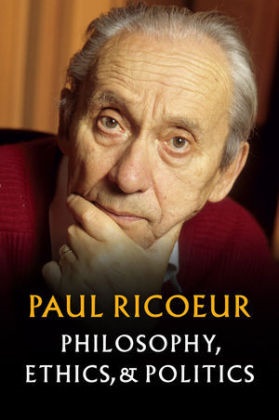Read more
In this series of interviews and dialogues which took place between 1981 and 2003, Paul Ricoeur addresses some of the central questions of political philosophy and ethics: justice, violence, war, the environmental crisis, the question of evil, ethical and political action in the polis. Philosophical issues are brought to bear on present-day concerns and the practical realities of contemporary politics.
How can the philosopher speak about politics without claiming superior insight or a higher order of knowledge? Ricoeur distinguishes three levels of society: 'tools' (modes of production and the accumulation of technology), 'institutions' (which are tied to national cultures) and 'values' (which claim to be universal). The philosopher's task is to probe each of these levels and open up spaces for reflection, criticism and democratic deliberation. It is to explore the paradoxes of the political rather than invoking certainties dictated by conscience. Just as there no longer exists a grand narrative about the past, so too there is no longer any utopia capable of projecting the desired future. What remains is human creativity, which marks the source common to the institutional frameworks that are already present and the horizons that extend beyond them. The philosopher's engagement lies in the promise to revive this source at the very moment it appears to dry up under the weight of the real.
This volume of interviews and dialogues with one of the most important French philosophers of the post-war period will be of interest to anyone interested in the great political and ethical questions of our time.
List of contents
Preface by Michaël Foessel vii 1. I'm Waiting for the Renaissance 1
2. Sketch of a Plea for the Capable Human Being 13
3. Paul Ricoeur: Act, He Said 25
4. The Polis is Fundamentally Perishable - Its Survival Depends on Us 37
5. History as Narrative and as Practice 45
6. Justice and the Market 59
7. For an Ethics of Compromise 80
8. Any News of the War? 89
9. The Challenge of Evil for Philosophy 96
10. Ethics, Politics, Ecology 103
11. Ethics, Between Bad and Worse 117
12. Art, Language, and Aesthetic Hermeneutics 132
Notes 154
Index 161
About the author
Paul Ricoeur (1913-2005) is widely recognized as one of the most distinguished philosophers of the twentieth century. He taught for many years at the University of Chicago. His many works include
Freud and Philosophy,
Time and Narrative and
Oneself as Another.
Summary
In this series of interviews and dialogues which took place between 1981 and 2003, Paul Ricoeur addresses some of the central questions of political philosophy and ethics: justice, violence, war, the environmental crisis, the question of evil, ethical and political action in the polis. Philosophical issues are brought to bear on present-day concerns and the practical realities of contemporary politics.
How can the philosopher speak about politics without claiming superior insight or a higher order of knowledge? Ricoeur distinguishes three levels of society: 'tools' (modes of production and the accumulation of technology), 'institutions' (which are tied to national cultures) and 'values' (which claim to be universal). The philosopher's task is to probe each of these levels and open up spaces for reflection, criticism and democratic deliberation. It is to explore the paradoxes of the political rather than invoking certainties dictated by conscience. Just as there no longer exists a grand narrative about the past, so too there is no longer any utopia capable of projecting the desired future. What remains is human creativity, which marks the source common to the institutional frameworks that are already present and the horizons that extend beyond them. The philosopher's engagement lies in the promise to revive this source at the very moment it appears to dry up under the weight of the real.
This volume of interviews and dialogues with one of the most important French philosophers of the post-war period will be of interest to anyone interested in the great political and ethical questions of our time.

